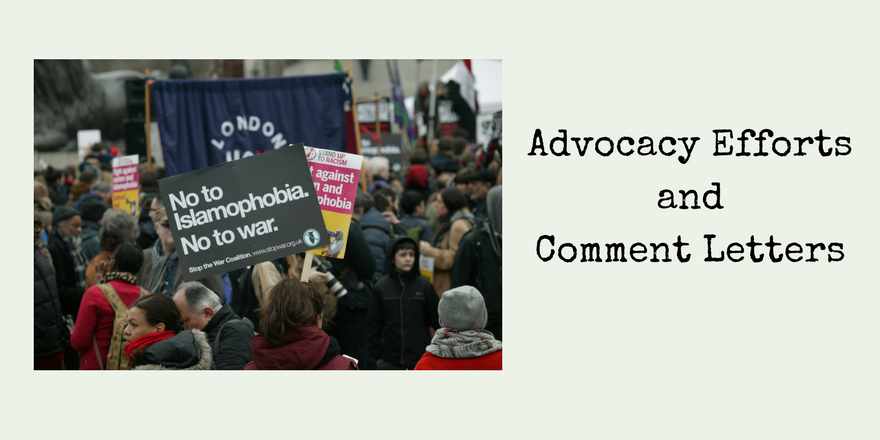February 19, 2004 Letter to President Bush, Senators Warner and Allen
and Representative Moran
and Representative Moran
PO Box 8208
Alexandria, VA 22306-8208
February 19, 2004
The President
The White House
Washington, DC 20500
The Honorable John William Warner
United States Senate
225 Russell Senate Office Building
Washington, DC 20510-4601
The Honorable George F. Allen
United States Senate
204 Russell Senate Office Building
Washington, DC 20510-4604
The Honorable James P. Moran
U.S House of Representatives
2239 Rayburn House Office Building
Washington, DC 20515-4608
Dear Mr. President, Senators Warner and Allen and Representative Moran:
As you know, Congress is scheduled to begin the debate on how to fund a six-year Transportation Equity Act reauthorization bill. Some are considering an increase in the federal motor fuels excise tax, or gas tax.
House Transportation and Infrastructure Chairman Don Young (R-AK) has introduced a $375 billion proposal, which is $128 billion above President Bush’s proposal. To pay for this massive increase in Transportation funding Chairman Young is supporting a 5.4 cent increase in the federal fuels tax and indexing future gas tax increases to inflation.
This is unfair and unacceptable to all taxpayers. According to the Federal Highway Administration, the current federal tax is 18.4 cents per gallon, and state gas taxes average just over 22 cents. Based on this information, American taxpayers are currently paying more than $50 billion annually in taxes on gasoline. This means that the average family’s annual gas tax burden is $660, and every penny increase in the gas tax raises that family’s annual tax bill by $25.
If the current proposal to increase the gas tax by 5.4 cents is enacted, families could see their yearly tax burden increase by $135. This would represent a total gas tax of almost $800 annually. In addition, the decision to index the tax to inflation creates a stealth automatic tax increase that these families will be forced to pay each year.
Instead of increasing the federal gas tax, Congress should look at new ways of paying for roads and more efficient highway construction methods. Any effort to increase the tax burden of the American driver to fund the growing transportation bureaucracy should be blocked.
Please fight to stop any increase in the gas tax or index it to inflation.
Sincerely,
James Landrith


June 1, 2004
Mr. James Landrith
PO Box 8208
Alexandria, Virginia 22306-8208
Dear Mr. Landrith:
Thank you for contacting me about the high price of gasoline and your interest in repealing the federal excise tax.
I appreciate your concerns. The price for regular gasoline has eclipsed past records and now hovers around $2.00 per gallon. While an all-time high in nominal terms, the current price of gasoline is still significantly lower than the inflation adjusted peak of $2.94 in 1981, and well below the prices seen regularly in European countries. This economic perspective may be helpful to place the price of gasoline in perspective, but it fails to reflect the large burden rising prices have on this country’s families and businesses.
Energy prices have been on the rise due to record low U.S. stockpiles and renewed economic growth that has spurred higher global fuel demand. Unfortunately, instability in the Middle East and a recent decision by the Organization of the Petroleum Exporting Countries (OPEC), which controls roughly half of the world’s exported crude, to limit production have boosted the price of crude oil to more than $40 per barrel.
The volatile gasoline landscape has not gone unnoticed by Congress. I have joined a number of my colleagues calling upon the Federal Trade Commission (FTC) to act on anti-competitive pricing policies and supporting efforts to bring OPEC’s price fixing policies under review by the World Trade Organization. I thought the enclosed tips to improve automobile performance and reduce costs, prepared by the Alliance to Save Energy, that might be of interest.
The rapid increase in the price of oil also continues to highlight our dependence on unstable foreign sources that now account for more than 50 percent of the oil we consume. To address this long-term concern, I have supported stockpiling additional oil reserves in the U.S. Strategic Petroleum Reserve and greater flexibility in the instances when it can be released to ensure sufficient supplies are available when foreign sources are disrupted. I have also supported increases in federal funding for federal energy research and development programs designed to promote greater energy efficiency and conservation. Had the first Bush administration in 1991 supported increasing the fuel efficiency in the average car from 27 mpg to 32 mpg, that action alone would have displaced all the oil we import from the Persian Gulf today. With close to 92 percent of our energy generated by fossil fuels, it is critically important for us to find ways to improve on its efficient use. Not only will these improvements reduce our dependency on foreign oil, but it will also help to improve the environment.
In recent years, some in Congress have advanced the idea of repealing or temporarily suspending the federal excise tax on gasoline when gas prices increase. The tax collected today is $0.184 per gallon and generates approximately $20 billion a year. This revenue is reinvested back into our transportation system to maintain existing infrastructure and expand capacity. While a suspension of the tax might provide some temporary relief, it would not keep prices from climbing again in the future. Moreover, it would starve existing transportation projects of their primary funding source and contribute to greater congestion and delays. Today, current congestion costs the local motorist more than $1,595 each year in lost time and wages, higher delivery costs for goods and services, and gasoline consumption from too many engines idling in traffic.
Please feel free to visit my updated website at http://www.house.gov/moran that contains information on topics that may be of interest. Thank you again for contacting me.
Yours truly,
James P. Moran
JPM/tba
Enclosure